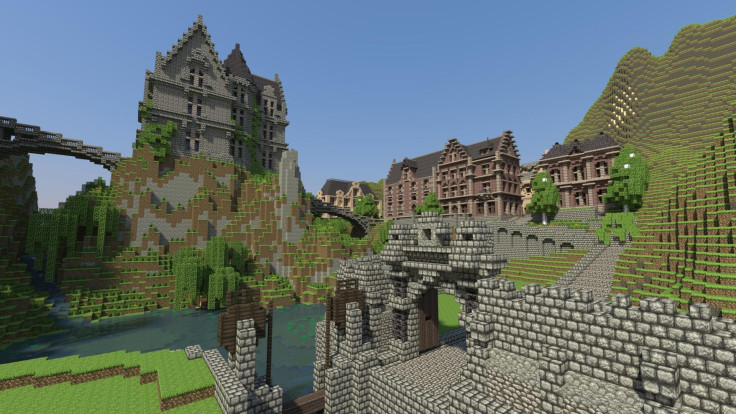Meet 'Medical Minecraft,' An Educational Experience Powered By IBM Watson

IBM's Watson gained global fame as a “Jeopardy!” master that beat former all-time winner Ken Jennings at his own game. While the superprogram is no longer dominating the game circuit, IBM has put the computer system to use in a wide range of applications from tennis to weather.
Now Watson is also powering a modified version of “Minecraft” that makes learning about the human body as fun as crafting a house. “Medical Minecraft” was created by high school educators to teach students about infectious diseases. Normally, that would be a topic that would completely bore teens or to be too complex to the point of alienation. The teachers behind the modification figured the best approach to teaching the subject was applying lessons learned from games.
When playing a game, the difficulty gradually increases as the player progresses. The player develops a mastery over the necessary skills required to advance, which leads to harder bosses, puzzles or levels later on in a game. A game could start off by completing a single jump and end with the player jumping all over the level via floating platforms, disappearing blocks or using a new tool acquired in the last level.
That same principle can be applied to education. As a student gains mastery of a subject, the teacher can scale up the challenge. The students could navigate the human body and encounter problems such as malaria, but a powerful teaching tool was still missing from “Medical Minecraft.”
One of the best uses of Watson has been in medicine. As a computer program, Watson excels at consuming a huge amount of data and being able to provide correct answers based on the question asked. Doctors can ask about gene behavior or potential complications from a procedure, and Watson can spit out a proper answer that matches the question's level of sophistication.
“With 'Minecraft,' the problem I was trying to solve is getting someone excited about diving into a large body of research,” said Porter Stowell, head of strategy and business at IBM Serious Games, in an interview with International Business Times at the Games for Change festival in New York. “With the students, you saw 'Minecraft' itself had an appeal, and that appeal didn't diminish significantly went they went into Watson.”
Students were now in control of the learning with “Medical Minecraft.” The students would encounter diseases such as malaria and would ask questions to solve these problems. The questions were basic when compared to what a doctor would ask, but Watson understood and was able to provide answers that matched the student's level of complexity. This would lead to the student asking even more questions. Before they knew it, the students were actually learning about infectious diseases.
Beyond games, Watson is a versatile computer program capable of recognizing image patterns, understanding tone or offering personality insights. Watson will also be used to make weather insights better. IBM acquired the digital assets of the Weather Channel in 2015. With that purchase came a trove of forecast data that Watson could use to create new insights for businesses. If a cooler summer is predicted, a retailer may decide to hold off on tank tops for a month.
The next games from Stowell could be in the form of simulations based on real events. Using the data points of a historic chess match, for example, players could compete against a champion to see if they could beat them. “Imagine re-racing the America's Cup,” said Stowell. “From a sailing perspective, you had the boats in the race. But what if I gave you a boat and you can try and beat them?”
© Copyright IBTimes 2024. All rights reserved.






















